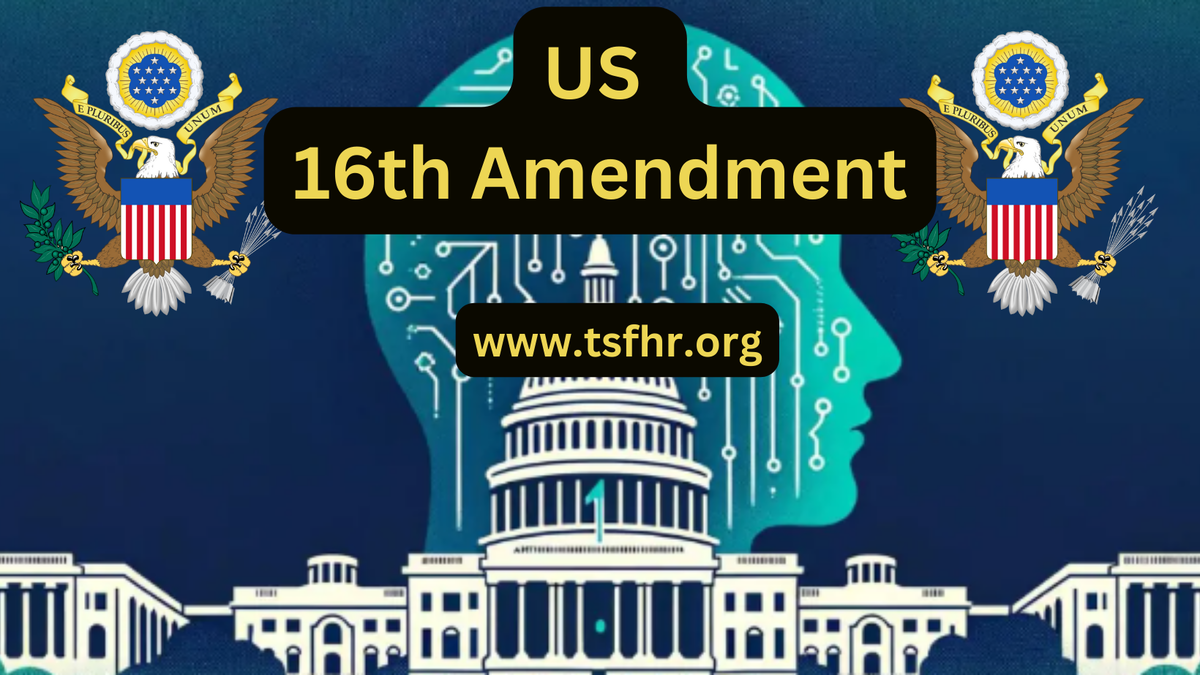What is the 16th Amendment in Simple Terms: Explore what the 16th Amendment means in simple terms. This article explains its creation, significance, and impact on income tax in easy-to-understand language.
Introduction:
The 16th Amendment is one of the most significant amendments to the U.S. Constitution, as it gave the federal government the authority to levy an income tax. This amendment fundamentally changed the financial landscape of the country, providing a major source of government revenue. In this article, we’ll break down the 16th Amendment in simple terms, covering its history, importance, and how it affects income tax today.
What is the 16th Amendment in Simple Terms:
What is the 16th Amendment in Simple Terms?
The 16th Amendment grants the U.S. government the power to collect taxes on income, whether it is from a person’s wages or profits. Before this amendment, income tax was not directly allowed by the federal government, and it was up to states to manage taxation. The 16th Amendment simplified the process, enabling the federal government to impose income taxes directly on individuals and businesses.
When Was the 16th Amendment Created?
- The 16th Amendment was ratified on February 3, 1913.
- It followed the earlier challenges to the constitutionality of income taxes, particularly after the U.S. Supreme Court ruled that income taxes could only be imposed in certain ways.
Why Was the 16th Amendment Created?
- The 16th Amendment was created to provide the federal government with a reliable source of revenue through taxation.
- Prior to its ratification, income taxes were considered unconstitutional under the existing laws. The federal government needed additional funds to finance government operations, particularly in light of growing economic demands, including war spending and social welfare programs.
Why is the 16th Amendment Important?
- The 16th Amendment is crucial because it allowed the federal government to generate income directly through income taxes.
- This expanded the government’s ability to fund services like education, infrastructure, and defense. The introduction of income taxes created a more equitable system where the rich could contribute more to the nation’s finances based on their earnings.
16th Amendment Rights
- The 16th Amendment does not grant specific rights to individuals but instead gives the government the authority to collect income taxes.
- However, it plays a significant role in ensuring that taxes are applied uniformly to individuals based on their earnings, regardless of wealth or status.
16th Amendment Examples
- Income Tax Implementation: After the 16th Amendment, the government began to collect income taxes from all citizens, regardless of their financial status.
- Progressive Tax Rates: The introduction of income tax also allowed the U.S. to implement a progressive tax system, where those with higher incomes pay a larger percentage of their earnings in taxes.
Examples of the 16th Amendment Being Violated
- Tax Evasion: Violations of the 16th Amendment can occur through tax evasion, where individuals or businesses deliberately avoid paying taxes.
- Unconstitutional Tax Laws: Some argue that certain tax laws, such as the tax on wages under specific circumstances, might be seen as violations of the spirit of the 16th Amendment, although courts have largely upheld these laws.
FAQs Section:
Q1: What is the 16th Amendment in Simple Terms for Kids?
The 16th Amendment allows the government to take a part of the money people earn from working. This money helps the country pay for important things like schools, roads, and the army.
Q2: What Does the 16th Amendment Say in Simple Words?
The 16th Amendment says the U.S. government can collect a tax from the money people earn, whether it’s from their job or business profits.
Q3: Why Was the 16th Amendment Created?
The 16th Amendment was created to help the government make enough money to run the country. It gave the government the power to collect taxes from people’s earnings, which was not allowed before.
Q4: What is the 16th Amendment of the Bill of Rights in Simple Terms?
Although the 16th Amendment is not part of the Bill of Rights, it still deals with a critical issue: how the government collects money from citizens through taxes. The Bill of Rights mainly protects individual freedoms, while the 16th Amendment addresses government powers.
Q5: What Are Some 16th Amendment Examples?
Income Tax Implementation: After the 16th Amendment, the government began collecting income tax, which affects everyone who earns an income.
Progressive Taxation: Higher earners pay a higher percentage of their income in taxes, as set by the progressive income tax system introduced after the amendment.
Conclusion:
The 16th Amendment is a key part of the U.S. Constitution that gave the federal government the authority to collect income taxes. This provided the government with a vital source of revenue, enabling it to fund essential services and programs. Understanding the 16th Amendment helps clarify how taxes are applied in the U.S. and why they are important for the country’s functioning.
Other Amendments Articles
